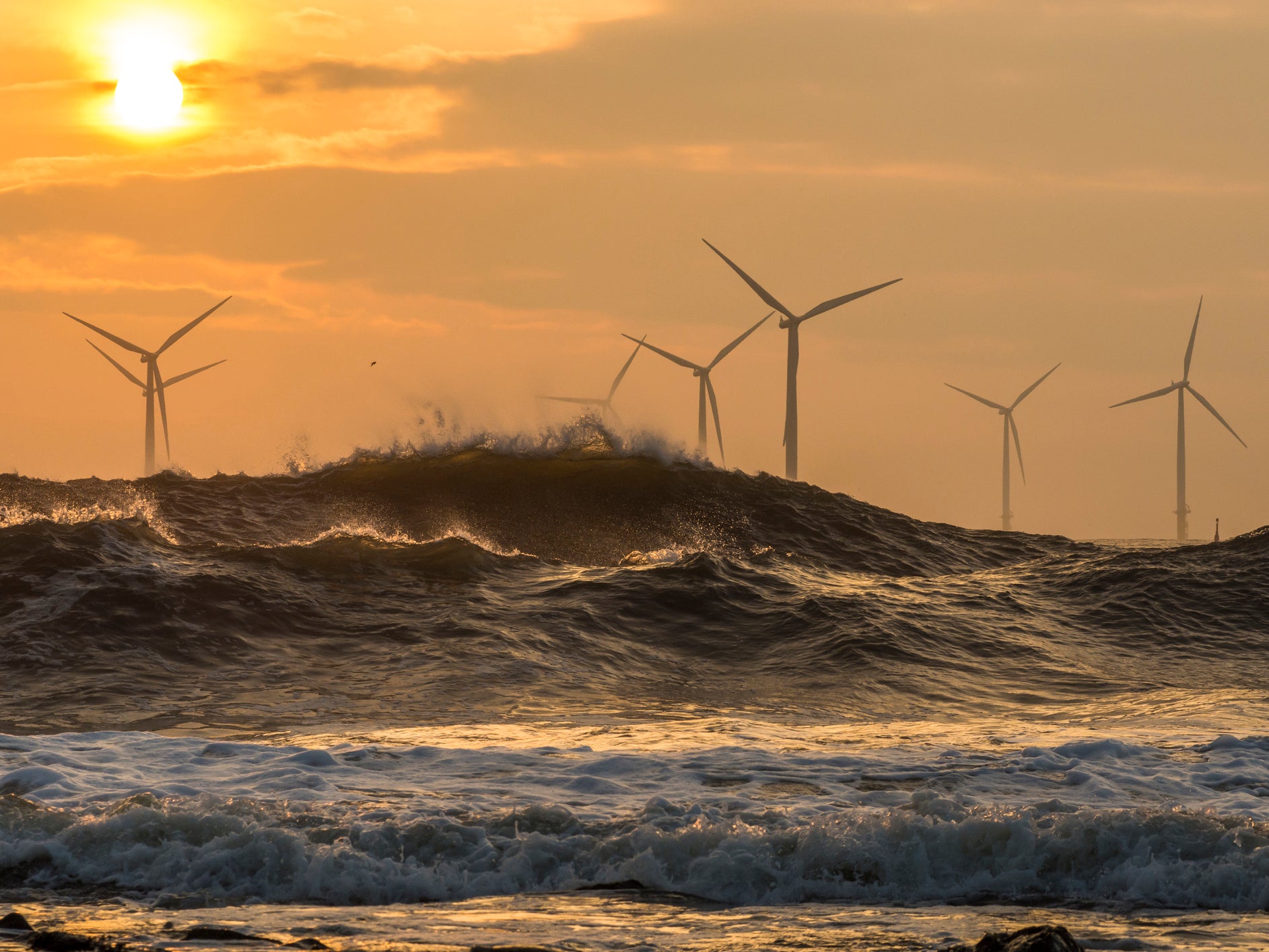Climate crisis: UK electricity network emissions could turn negative by 2033, says National Grid
Major renewable projects coupled with electric vehicle uptake and government action to reduce burden of home heating will ensure country hits net zero targets, says energy operator

“Immediate action” to promote cleaner, more efficient power will ensure the UK hits its 2050 net zero target and could even see electricity production emissions turn negative in 13 years if carbon capture and storage technologies are implemented, the National Grid has said.
In a detailed report examining four “future energy scenarios”, three out of the four models indicated the UK could hit net zero by 2050 or earlier, but warned reductions in emissions from areas including transport were essential.
A surge in new clean energy projects including the installation of 40GW of wind capacity, as well as new solar projects and bioenergy will significantly reduce emissions, while other changes, including carbon capture technologies, battery improvements and increased consumer flexibility will help plot a course towards an overall removal of more CO2 from the environment than is produced.
A major move towards use of electric vehicles – charged at home during off-peak hours – would help balance the grid, the report said, while a shift away from use of gas boilers for home heating towards use of heat pumps, would also make for greater efficiencies and considerably lower fossil fuel emissions.
By 2050, “the input energy required to heat an average house could drop to as little as a quarter of what it is today”, the report states, but it adds that “significant investment in low carbon electricity generation will be required across all net zero pathways”.
National Grid ESO head of strategy Mark Herring said: “Across all scenarios, we see a growth in renewable energy generation, including significant expansion in installed offshore wind capacity. There is a widespread uptake in domestic electric vehicles, and growth and investment in hydrogen and carbon capture technologies too.
“Our new analysis of the level of societal change needed to achieve net zero also shows that consumers need greater understanding of how their energy use impacts the wider system, and how changes to their lifestyle have an impact on net zero ambitions.”
Mr Herring said the authors of the report spoke to over 600 industry experts, and warned there are “significant challenges ahead”.
The report forecasts 11 million electric vehicles on British roads by 2030, and over 30 million by 2040 in what was described as “the most stretching net zero scenarios”.
By 2050, up to 80 per cent of households with an electric vehicle will be “smart charging” their car, plugging in outside of the evening peak when energy is cheaper and demand on the grid is lower.
The Grid’s vision depends on significant levels of government action. The report states that “urgent policy decisions” are required to ensure decarbonisation from heating systems, and “drive change across the whole energy system”.
It also says new “cross-sector regulations and services are needed to simplify the changes consumers need to make”.
Meanwhile, at least 3GW of wind and 1.4GW of solar power must be built every year from now until 2050.
Mr Herring said: “There is already significant progress being made towards net zero, including ESO planning to operate a zero-carbon electricity system by 2025, but the fundamental changes outlined make it more important than ever to have a coordinated approach to decarbonising the whole energy sector.”
Join our commenting forum
Join thought-provoking conversations, follow other Independent readers and see their replies
Comments
Bookmark popover
Removed from bookmarks